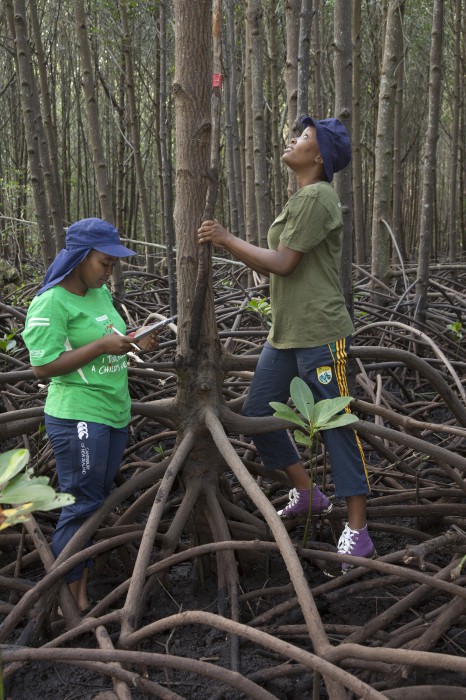

For a community to participate in the management of state forests (such as mangroves), it needs to sign a forest management agreement (FMA) with the government agency in charge of the sector, in this case the Kenya Forest Service (KFS). Signing of FMA is preceded by the formation of Community Forest Association (CFA) and the development of a Participatory Forest Management Plan (PFMP) for the area. As the name implies, developing the plan is a participatory process whereby views and concerns from different stakeholders are collected and analyzed. The final Management Plan includes a zonation map showing activities of different stakeholders in the designated forest area. The Participatory Forest Management Plan becomes operational once the Director of the Kenya Forest Service, the state agency in charge of forest management in Kenya, has approved it. The Plan for Mikoko Pamoja was approved in May 2013, followed by the signing of the forest management agreement in October 2013.
- Enhanced community education and awareness on the values of mangroves goods and services.
- Increased threats of mangrove resources from deforestation and forest degradation.
- Community willingness to co-manage mangrove forests with the government.
- Establishment of a community forest association in Gazi.
- Strong support from government, private sector, NGO, and research organization.
- A clear zoning plan for each of the user group within the CFA.
- Development of a participatory forest management plan should be a transparent and an all-inclusive activity.
- The process is time consuming particularly when you have to consider divergent views.
- Planning is a dynamic process; it is therefore easier to build a consensus as soon as possible and provide room for future changes.
- Community buy-in of the management planning process is critical for its full implementation.
- Resources need to be allocated to the development of the forest management plan, as it can be quite an expensive process. The cost of developing a PFMP for Gazi Bay was estimated at US$ 30,000; much of which went to community negotiations and capacity building.